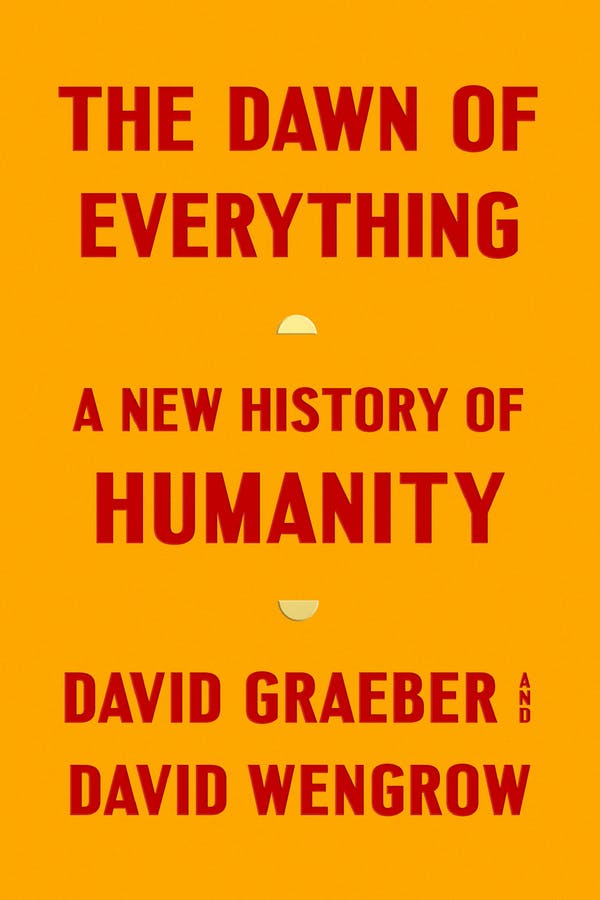The Dawn of Everything: A New History of Humanity was one of the first books I picked up purely for my reading pleasure after liberating myself from the ridiculously demanding work schedule that I had as a university professor. I am so glad that I did (that is, both pick up the book and leave that job behind)!

This hefty book has been getting a lot of press, positive and negative, so there are already tons of places that you might look for a summary, if you are so inclined. I’m not so sure that one can really successfully summarize a book like this one, though, so I’m not going to try.
I will mention some of the things that I most appreciated about it. From the start, it forced me to confront (not for the first time) the shortcomings and miserable failures of my own education when it comes to the indigenous cultures of North America. As the book progressed, I learned a lot about various cultures across wide swaths of space and time. Gaining a greater understanding of the great diversity of ways in which humans have intentionally chosen to organize their societies would be reason enough for many people to give some time and attention to the book.
But what I probably found most valuable for getting the old brain juices flowing were the authors’ discussions of some very fundamental freedoms. Over many years as a student and then also as a teacher, I’ve thought a lot about the ways in which many of us are socialized into obeying authorities rather than deciding for ourselves what a good life looks like (and how best to pursue it). This book enabled me to think about a whole host of related issues from a new angle, and I suspect some of the ways it has changed my thinking will be quite long-lasting.
Of course I’m neither an anthropologist or an archaeologist, so I don’t have the right kind(s) of expertise to assess the methods used to collect, analyze, and interpret data in the background research, but the book did also help me learn a lot about the preoccupations, habits, and assumptions that are common to many practitioners of those disciplines, which was both interesting and useful for me.